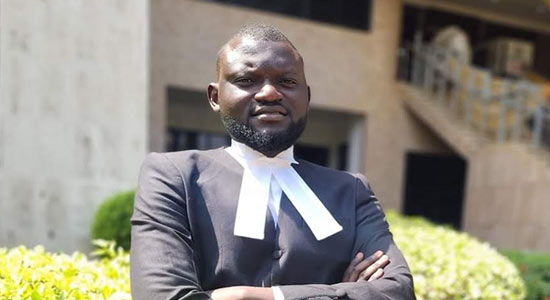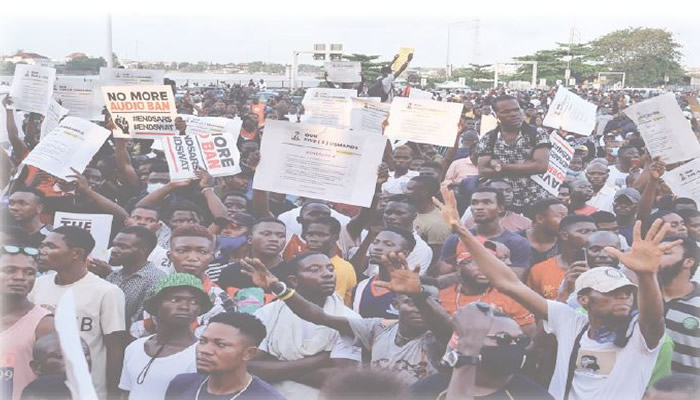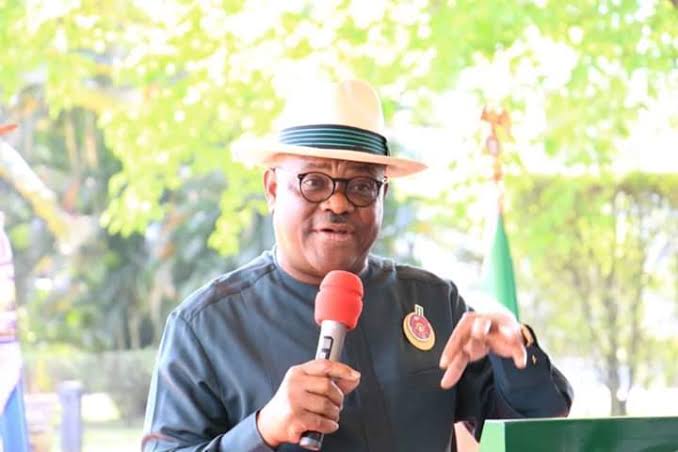By Opatola Victor Esq
A Federal Capital Territory (FCT), High Court recently granted an injunction against protesters, restricting their protest to the MKO Abiola stadium, Abuja. The ex parte motion brought by Nyesom Wike, minister of the FCT suing Omoyele Sowore, Damilare Adenola, Adama Ukpabi, Tosin Harsogba, and persons unknown as the first 1st to 5th defendants retraining from gathering or parading themselves along any roadway, streets, offices, and public premises within the FCT between August 1 to August 10, or any other day thereafter, pending the hearing and determination of the motion on notice.
It is good to state very clearly that all courts order are binding and of maximum effect until the court decides otherwise.
Yet, the position of our laws are clear as a whistle, save for special procedure suits relating to land and properties, unknown person as a defendant to a lawsuit is unknown to law. Under the Nigeria legal jurisprudence there is no such concept as “unknown people” except in special exception of matters particularly relating to properties. A quick look at the order 13 rule 9 and 10 of the FCT High Court rules, the only instance mentioned the use of “unknown person” can be used to sue a defendant is in regards to land matters only.

For emphasis sake: Order 13 rule 9 and 10 states that:
Where in land matters claimant is unable to identify the person against who A is he claims, he may subject to the Rules of this court describe such a person as a`person unknown
Such a Defendant under this Rule may by leave of court apply for the substitution of his name as a defendant in lieu of the reference to him as person Unknown”
Too many Supreme Court Cases has emphasised that a defendant must be a natural person or a juristic person. An unknown or unnamed defendant does not possess the legal capacity to be sued. This principle is supported by cases like Agbonmagbe Bank Ltd. v. G.B. Ollivant Ltd. and Federal Government of Nigeria & 2 Others v. Shobu Nigeria Ltd. & Anor. Faweinhmi v. NBA
The various court injunctions restricting protesters are only applicable to Mr. Sowore, Damilare Adenola, Adama Ukpabi, Tosin Harsogba, and natural or juristic who are named by their parents as “persons unknown”.
In the case of Anozia v. A.-G., Lagos State the term “Natural person” denotes a human being while the term “juristic person” is an entity, an artificial person that is duly accorded recognition by law as having the rights and duties of a human being. In this wise, the term juristic person includes corporations, partnerships and such other associations whether incorporated or unincorporated. A Natural person under the law is a human being, while a juristic person are artificial person or entity, such as a corporation, created by law and accorded certain legal rights and duties of a human being; a being, real or imaginary, who for the purpose of legal reasoning is treated more or less as a human being. It is also termed fictitious person; legal person.
The injunctions are applicable to protesters that are specifically named in the matter and a category of protesters that individually and singularly goes by the name “unknown persons”.
Suing an unknown entity, with the legal exception of trespass to land, goes against the gamut of Nigeria Laws, because such an “unknown person or entity” lacks the attributes of a juristic person, making it impossible to ascertain their legal status and hold them accountable.
Service of Court Process:
Service of a Court Order is intrinsic to the binding nature of such order. If a Court directs that an act be done in a specific manner it must be done in the manner prescribed, even of the court order will be enforceable on Mr. Omoyele Sowore, Damilare Adenola, Adama Ukpabi, Tosin Harsogba, and juristic and natural persons going by the name “persons unknown” then such other must be served exactly as prescribed by the Court. It is good to quickly state that where the court stipulates service by Newspaper, it does not envisage mere journalist reportage in a newspaper, it requires the publication of the order as exactly granted and written in its form and substance; on the Defendants. This ha not been done.
Furthermore, the FCT high Court order granted by the Court for the Inspector General of Police, Commissioner of Police, Director General of the State Security Service, Director General of the Nigeria Civil Defense Corps, Chief of Army Staff, Chief of Air Staff, and Chief of Naval Staff to restrict the “unknown persons” from protesting can be enforceable on Mr. Omoyele Sowore, Damilare Adenola, Adama Ukpabi, Tosin Harsogba, and juristic and natural persons that individually and singularly goes by the name “unknown persons” and even at that, it can only be enforced on Mr. Omoyele Sowore, Damilare Adenola, Adama Ukpabi, Tosin Harsogba, and juristic and natural persons that individually and singularly goes by the name “unknown persons” only where it has been shown to be effectively served on them.
In conclusion, the various injunctions gotten by various state is only applicable to specifically named individuals such as Mr. Omoyele Sowore, Damilare Adenola, Adama Ukpabi, Tosin Harsogba, and juristic and natural persons who individually goes by the name “persons unknown” alone and it is not applicable to protesters not going by that name or designation.
Opatola Victor is
a legal practitioner and policy analyst.
In this article:

